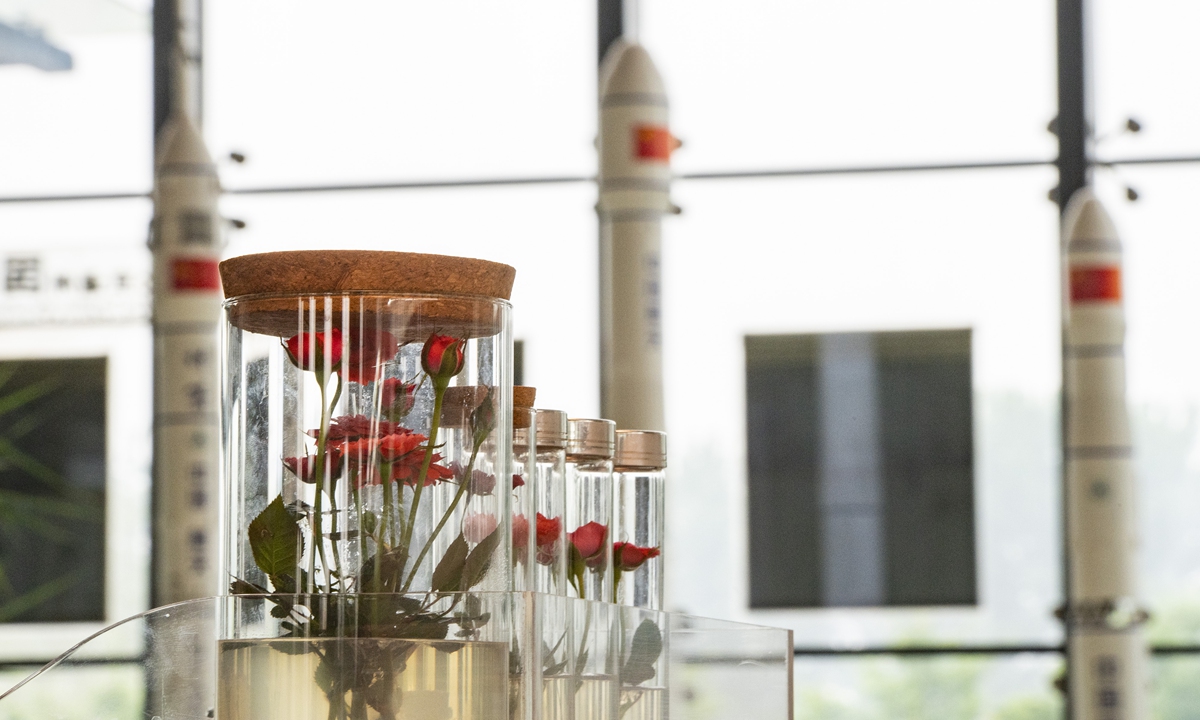
Chinese roses grown from seeds cultivated in space are displayed at a demonstration base in Beijing on June 27, 2022. A variety of fruits, vegetables and flowers have been cultivated from "space seeds" in the base. Nearly 1,000 new species have been created in China through space seed breeding. Photo: cnsphoto
136 types of seeds, including crops, forest vegetation, flowers, and microorganisms will be carried on board the Shenzhou-16 manned spacecraft to start their space breeding journey. These seeds will contribute to the advancement of China's agricultural science and technology and enhance food security, the China Manned Space Engineering Office announced on Wednesday in a statement.
The seeds were selected through a four-month application and review process and have been chosen from 53 institutions across the country. The project, conducted by manned spaceflight, is of a public welfare nature and does not charge any carrying fees.
It has been 36 years since China's first space seed breeding effort in 1987, the country has sent the seeds of hundreds of plant species into space on dozens of retrievable satellites and Shenzhou spaceships. Nearly 1,000 new species have been created, of which 200 have displayed outstanding performances, according to media reports.
Space seed breeding uses cosmic radiation to mutate the genes of seeds sent into space, in order to create new species for greater variety.
"Space peppers and watermelons" commonly found in supermarkets in China are successful varieties of space breeding. China ranks first in the world in the number of cultivated varieties and the range of popularization and application of space breeding, read media reports.
The area under cultivation for grains, vegetables, fruits and other plants developed by space seed breeding has surpassed 4 million hectares, and generated economic benefits of over 200 billion yuan ($30.51 billion), media earlier reported.
The seeds need further improvement, especially in disease resistance, through conventional breeding methods or space breeding, the Xinhua News Agency reported.
Space breeding involves exposing seeds and strains to cosmic radiation and microgravity during a spaceflight mission to mutate their genes.
China's space seed breeding level also reflects the nation's advancing aerospace technology, Li Guoxiang, a researcher at the Rural Development Institute of the Chinese Academy of Social Sciences, told the Global Times.
"There are only a few countries in the world with mature aerospace technology, and China's level of space seed breeding technology is world-class," Li said.
Global Times




